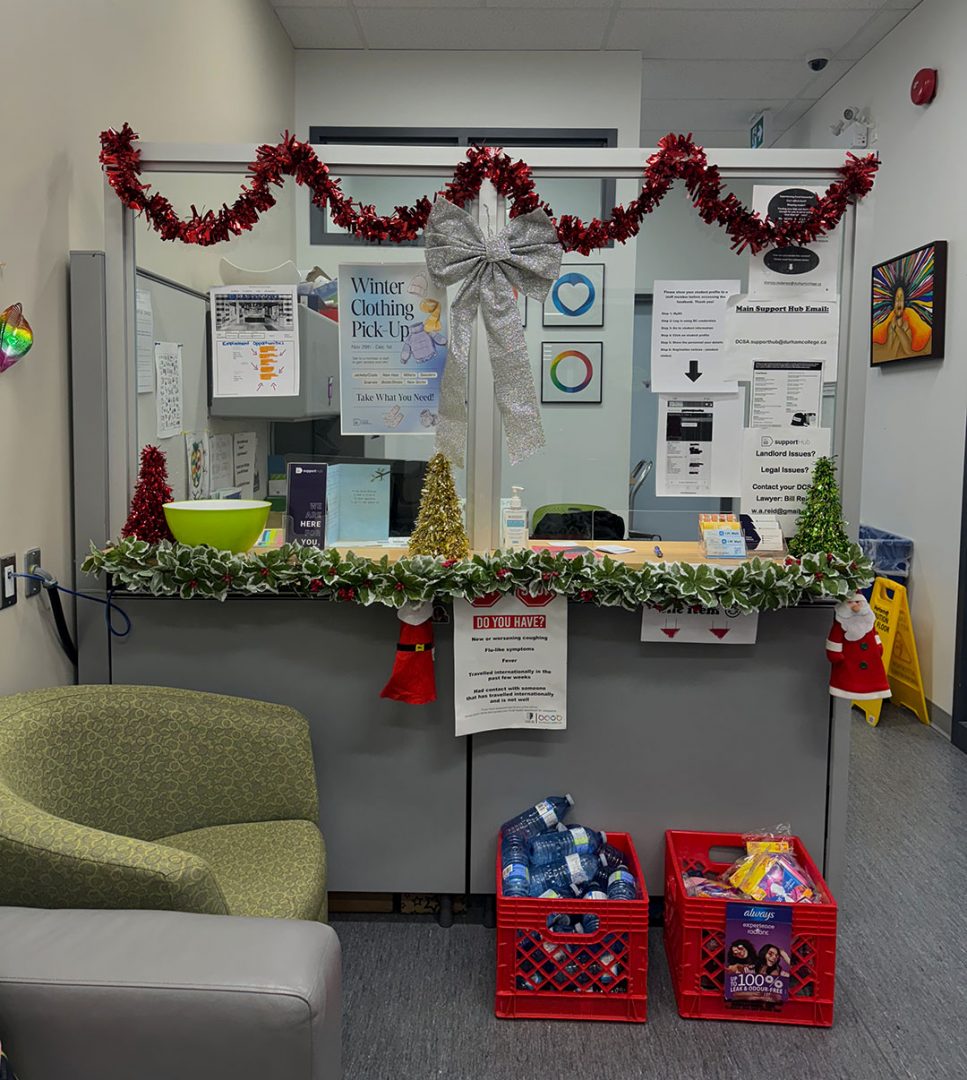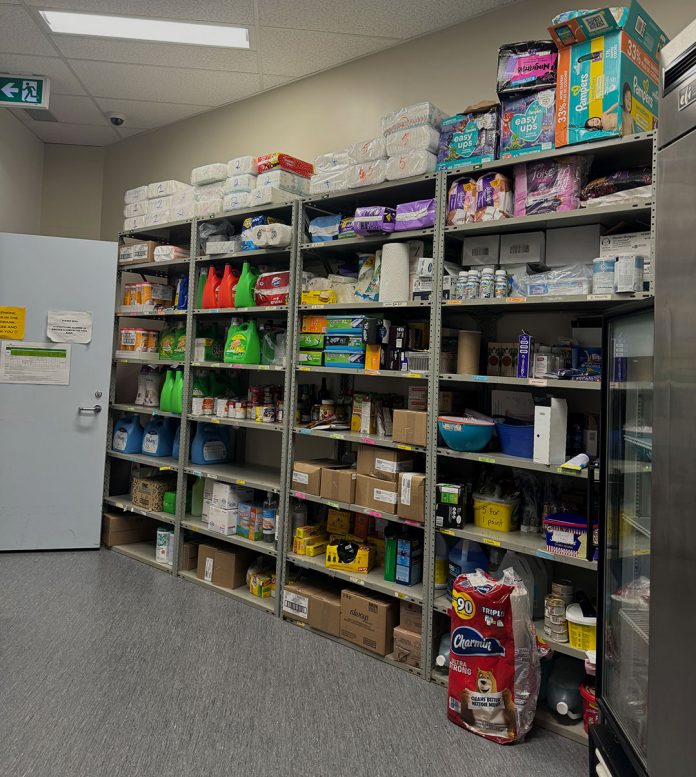Video Production student Hrithik Udani, 23, came to Durham College in September from India.
He recently visited the Durham College Student Association (DCSA) food bank for the first time and was given two full bags of food.
With the cost of living and high grocery prices, Udani says the food bank is the only way he could get certain foods.
“I got kale from the food bank and, although I like it, I would have had to compromise it if I had to buy it because it’s expensive,” he says.
From paying double the amount of money for course fees, to being restricted to a limited number of working hours a week, international students face many challenges. With high grocery prices, food is another one of them.
The DCSA food bank is supplied by Feed the Need Durham. It’s offered once a month to all full-time students who are facing food insecurity.

One issue the staff at the food bank have noticed with both domestic and international students is a lack of understanding for the food bank’s purpose.
However, staff say at times there can be a bit more confusion with international students because of a language barrier.
“Some of the places where our international students are coming from, they don’t have similar types of services, so there’s an education piece as well that we’re trying to do,” says dean of International Education, Thom MacDonald.
He says the college works on educating people on financial planning, as well as the purpose of the food bank.
MacDonald says emergency bursaries are also available to both domestic and international students. The bursary is intended for more unexpected financial issues, and isn’t designed to support people’s basic needs.
For example, the bursary has helped international students who have faced sudden housing challenges.
“We’ve had a lot of success helping international students with that bursary, giving them a little bit of a bursary to help them through some challenging circumstances,” says MacDonald.
Durham College also doubled the IWorks positions in the fall available to international students, which filled almost instantaneously, according to MacDonald.
Out of about 12,600 students at Durham College, just under 4,000 of those students are international.
Members from MacDonald’s office, the DCSA, the dean of students, financial aid and awards, and local food banks, have recently started meeting regularly. They discuss food insecurity and emergency housing, and how they can better support students and community food banks.
“So, there’s a lot of new ideas going on, and people recognize that, yeah, this is a real issue and it’s not somebody else’s problem,” says MacDonald.
Meanwhile, as a student, Udani says he was content with the variety of things he received from the food bank, “within all the categories of the requirements, not only one, but with respect to foods, oats, cereals, etc, they just take care of everything.”
For any students struggling financially they can reach out to Financial Aids and Awards for further guidance. More information on Durham College’s food bank is also available at mydcsa.ca




